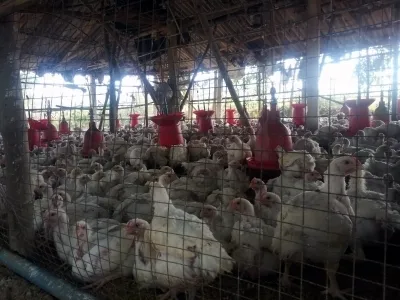Surge in Avian Influenza Cases in Japan

Synopsis
Key Takeaways
- Five million birds culled in January 2024.
- New outbreaks confirmed in Morioka City.
- 26 outbreak sites identified.
- Egg prices have risen by 15 percent.
- Concerns over potential supply shortages.
Tokyo, Jan 22 (NationPress) Japan is witnessing a significant increase in avian influenza outbreaks, leading to the culling of nearly five million chickens and other birds across five prefectures this month.
The Ministry of Agriculture, Forestry and Fisheries has confirmed new outbreaks at two poultry farms located in Morioka City this week, which has necessitated the establishment of an on-site response headquarters in Iwate Prefecture.
A total of 26 outbreak locations have been reported this month, with almost 5 million birds affected.
The ministry has cautioned that the outbreaks are showing no indication of slowing down, suggesting that the situation may escalate beyond previous records.
Furthermore, the ministry has reported that the impact on egg prices has been significant, with a 15 percent rise since the beginning of the year, according to the Xinhua news agency.
Industry analysts are expressing concerns over possible supply shortages as the ramifications of avian influenza start to manifest.
The first bird flu outbreak of the season was identified in October 2024, following the discovery of several dead chickens at a poultry farm in Hokkaido.
Upon detecting the highly pathogenic strain of avian influenza, authorities in Hokkaido culled approximately 19,000 chickens as a preventive measure.
Additionally, movement restrictions were enforced, barring the transportation of chickens and eggs within a three-kilometre radius of the farm and prohibiting the shipping of poultry products beyond a 10-kilometre radius.
The Hokkaido government has called for strict adherence to containment measures to prevent further spread and has reassured the public that current poultry products available are safe for consumption.
In response to the outbreaks, the Japanese government has established an information liaison office at the Prime Minister's Crisis Management Centre and has begun data collection in coordination with local authorities.
H5N1 influenza is a virus that typically spreads among infected poultry, but it can occasionally transmit from poultry to humans, with symptoms that include fever, cough, runny nose, and serious respiratory illness.










